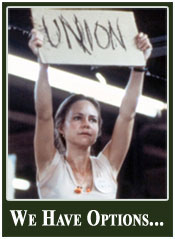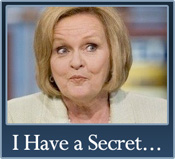Supplemental Executive Trust Fund (SERP) was Worth $41 Million
AMR Sold American’s Fuel Hedge to Southwest for $41 Million
$41 Million is the Same Figure Assessed to AMR’s Executive Trust Fund
Former American Airlines CEO Donald Carty admits that the Supplemental Executive Trust Fund (SERP) was worth $41 million.
Why this is of interest is because this is the exact figure accessed the the Fuel Hedge that AMR sold to Southwest for $41 million during the company's restructuring.
It's also import because court depositions show that the $1.8 billion in annual concessions demanded from employees was nothing more than a cut-and-paste figure from a low-cost labor comparison AMR did in 2002 in an effort to align American with Southwest.
Simply put, AMR sold American's fuel hedge to the competitor and then lied to employees in an effort to gain a labor advantage against the very said competitor that AMR said it couldn't compete against. They sold American's fuel hedge thus putting American at a cost disadvantage solely to to fund an executive trust.
Airlines in Tailspin
By Milt Neidenberg
One robber baron is down--but the system he represents goes on.
Donald J. Carty, chief executive officer of American Airlines--the biggest airline carrier in the world--has reluctantly resigned. He and other top executives in the industry were caught sticking their grubby, greedy hands into AA assets.
Gerard J. Arpey, a board of directors' favorite, is now CEO. He is a beneficiary of the same freebies that Carty and the others secretly grabbed.
Meanwhile, AA union members have suffered mass layoffs and drastic cuts in wages and benefits. Work loads have increased immeasurably. Worker safety has been endangered.
In an airline crisis of unprecedented proportions, AA workers had voted to give up $1.62 billion annually to save the company.
In stark contrast, Carty and seven top executives tried to take "retention" bonuses for the next two years worth up to twice their base salaries. Carty's bonus would have been more than $1.6 million, based on his salary of $811,000.
Infuriated by these obscene financial arrangements, the unions forced Carty and others to forgo their bonuses. But the bosses refused to give up a trust fund they control, which protects their pensions regardless of what happens to AA--including bankruptcy.
Carty admitted that this trust fund was built up with a $41 million payment last October--at a time when AA was losing money by the minute. When the leaders of the Allied Pilots Union, the Transport Workers Union and the Association of Professional Flight Attendants found out, they withdrew their "yes" votes on the recent $1.62 billion in concessions.
Unfortunately, a few days later, these same union leaders called on a handful of Democrats to broker a settlement. Under the threat of bankruptcy, the unions agreed to reverse their decision and accept the cuts with some minor sweeteners--although the flight attendants held out to the bitter end.
Underneath the rock of greed and corruption
For a moment, rank-and-file anger against corrupt corporate leaders shook up a powerful corporation. It's a lesson for other airline workers.
Similar disclosures have revealed that Delta Air Lines and United Airlines poured millions of dollars into special pension trust funds and "retention" bonuses for management. Meanwhile, workers' 401k and other pension funds are seriously under-funded, some nearly bankrupt. Regulatory filings will show that all too many companies have set up privately funded payouts for upper management.
Slip & Fall Railroad Accidents Maritime Accidents Truck Accidents Products Liability Pedestrian Accidents Motorcycle Accidents Dram Shop Statute of Limitations
Recently, AA filed its annual proxy state ment with the Securities and Exchange Commission. Retention bonus es were still there, along with the pension trusts. (New York Times, April 25)
This high-powered government regulatory agency is supposed to provide oversight against Wall Street swindles--including the widespread practice of cooking the books. But the truth is, they're all employed by the same ruling class, which covers up corrupt practices that exploit workers and oppressed nationalities.
It is not only AA executives' greed involved in doling out exorbitant pension benefits to themselves. Corruption is built into the system of capitalist exploitation.
Interlocking relationships among corporate heads and bankers allow them to milk the corporations dry. Last year, J.P. Morgan Chase conspired with Enron to obtain hundreds of millions of dollars in illegal tax deductions that gave Enron's executives enormous financial benefits. The bank was rewarded as well.
Recently, the SEC, in consultation with New York Attorney General Elliott Spitzer, tapped the wrists of some of the biggest investment companies with a $1.4 billion penalty. Some analysts say these fines are chicken feed compared to the billions investors lost because of conflict of interest violations. It's comparable to profits accrued in a few minutes by the giant Wall Street firms.
SEC Chair William Donaldson revealed the real reason: "to restore investors' faith in the objectivity of research," which is code for luring small investors back to the stock market.
It's too late. Millions of workers and middle-class people have lost their savings, pensions, retirement funds, health benefits and other insurance plans in the stock market decline. Mass layoffs, plant closings and bankruptcies have exacerbated the crisis. The banks will continue to do business as usual and profit from the misery caused by corporate malfeasance.
If American Airlines goes into Chapter 11 bankruptcy, Citicorp--a global banking empire--will be the major underwriter to finance the bankruptcy. The bank is now the beneficiary of the frequent flier miles program and a valuable credit card business.
Edward A. Brennan, former chair of Sears Roebuck, is the new chair of the AA board of directors. He also sits on the boards of McDonald's, 3M, Excelon and, most important, Morgan Stanley--financial advisor to AMR Corporation, which is the parent of American Airlines. Philip J. Purcell, CEO of Morgan Stanley, sits on the AMR board. Michael Miles, chair of the AA compensation board, which approved the handouts, sat with CEO Carty on the boards of Dell Computer and Sears Roebuck.
The interlocking relationship among boards of directors, CEOs and bankers is inherent in the system of monopoly capitalism. They, together with the owners of privately held companies, constitute a ruling class, which oversees the capitalist government and the current Bush administration.
The U.S. global war plan is calculated to strengthen this empire of high finance. Many billions of dollars are pouring in to the Pentagon occupation of Iraq and future military conquests, while tens of thousands of airline workers are being laid off.
A job is a right!
The airlines, in the throes of collapse, show the same symptoms that led to crashes in the steel, telecommunications and dot-com industries, and that now threaten the auto industry.
Overproduction in the boom years, reckless spending of billions of dollars to expand, and too much debt have led to the current debacle.
More than 1,300 airplanes stand idle and rusting in the Arizona desert. Fear of flying since Sept. 11, 2001, the invasion of Iraq and the emergence of Severe Acute Respiratory Syndrome have exacerbated the crisis.
AA has now reported a first-quarter loss of $1.04 billion. Bankruptcy looms despite worker concessions. If it happens, AA--the biggest airline in the world--will join United Airlines, the second-biggest, in Chapter 11 bankruptcy. Together with US Airways, this would place three out of six of the major airlines in bankruptcy court.
United Airlines filed for bankruptcy in December 2002, while holding around $23 billion in assets. In bankruptcy, UAL is no longer the owner of the property or the assets. Legally, its status is that of a debtor--it owes about $22 billion--which has been granted possession to run the airline at the discretion of the bankruptcy judge and an appointed trustee. UAL executives are unable to sign a check, pay a bill, or receive their salaries without the court's signature.
The court approved the retention bonuses and pension trust for the bosses.
The banks are brought in to lend the company--the debtor in possession--money to pay bills and reorganize the operations. UAL lawyers point out that the list of other creditors who want their money fills 32,000 typed pages. (Wall Street Journal, Dec. 10)
These vendors and investors are unsecured creditors who will lose much of their equity.
The powerful banks led by J.P. Morgan Chase and Citibank--the secured creditors--will lay claim to the UAL property if the loans are not paid.
Chapter 11 bankruptcy makes it more difficult for airline workers to overcome the collusion between UAL--a bankrupt airline--and the banks that are protected by the bankruptcy court.
But it also opens up the opportunity to challenge them and the bankruptcy court's decisions that threaten the workers' jobs and benefits.
Clearly, the hundreds of thousands of UAL union members should lay claim to ownership. They are the principal creditors. They built the company with their experience, skills and sacrifices. What they gave up in lost wages, pensions, severance and other benefits is deferred income.
It amounts to loans to the company--a total of $12 billion over the next five years, or $2.4 billion annually. The workers have the right to run the company. It won't happen without a struggle against the ruling-class conspiracy.
United Airline workers, particularly flight attendants, have made a tireless effort to educate their members about these facts. They have formed Airline Workers Unite (AirlineWorkersUnite@yahoo.com).
Their most recent communication declared that the members have the right to run the airlines and proclaims that "a job is a property right."
Holding assets during bankruptcy is a common practice of the banks. It's time for airline workers to recognize that the assets belong to them--and to take a cue from their 1930s forerunners by fighting for workers' control.











